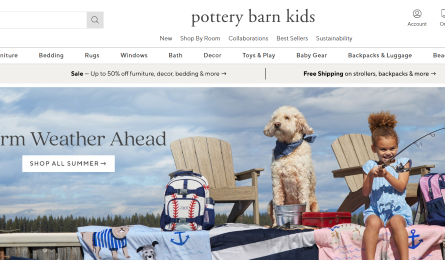Many say keeping lines of communications open is critical to maintaining sourcing relationships
HIGH POINT — As uncertainty continues to loom in the U.S. furniture industry, importers say they are working with overseas source factories to help maintain a sense of calm amidst order delays or cancelations from retailers.
This is a delicate balancing act in which U.S. companies are trying to keep the lines of communications open about what is happening in the market and what to expect in the coming months.
Some of these importers have told Home News Now that they are also working with their source factories to help give them as many orders as possible during the slowdown — particularly where it makes sense to fill voids in their own warehouses and on retail floors.
Indeed, many say they don’t see as much a long and protracted slowdown as one that will bring the industry back to normal from the stratospheric sales experienced during the last two years. Yet they say they still need to make sure they are working as closely with their factories to serve their customers in the interim.
By doing so, they also will help ensure a steady flow of product to their customers both during the slowdown and after business picks up again.

“I think the most important thing for us in terms of what we can offer our retailers is to be as focused on and as dedicated as we can be to being on time, which for our retailers means being in stock. And driving up the quality of our product so it is as trouble-free as possible,” said Joff Roy, CEO of case goods importer Jofran. “Now more than ever, we also are focusing our energies on keeping our best factories full.”
Others too are working to feed factories not only orders but also information on what to expect in the coming months.
“You have to have absolute transparency with the factory and clear projections so they know how best to structure their strategies in the near term and the long-term,” said Christian Rohrbach, vice president, merchandising at case goods importer A-America. “If you get a cancelation, it’s a conversation you have to have with them and be clear about what’s going on.”
Rohrbach said A-America has had some order delays and cancelations but said it has been nothing like early 2020 when business came to a complete shutdown. The challenge now is to manage a supply chain with orders placed last year continuing to arrive at retailers bursting at the seams with inventory. Then they have to plan for what’s next.
“Everyone is trying to figure out what will happen in the next 6-12 months, particularly with inflation,” Rohrbach said. “It’s not all doom and gloom but there are a lot of scenarios that could play out. Those that shut it off now and are without inventory come Q3 or Q4 will be in trouble.”
“You don’t want to be short sighted right now,” he added. “You have to play the long game here with communication and accurate projections.”

Lee Boone, president of motion furniture resource Luxfort Home, agreed that decreases in demand have impacted factories in Vietnam.
“It really has walloped the factories because the unit demand is a fraction of what it was before,” he said.
The Luxfort Home line is being made in the Vietnam production facilities of Leather Master, which up to this point has mainly built product for OEM customers. While it still does the OEM work, the Luxfort Home line is adding new business for the plants.
But that is where Boone sees the biggest area of opportunity.
“There is going to be more opportunity at retail than OEM,” Boone said. “That is the main thing I have been involved in doing — I am trying to bring in as much business as possible, and it is all new and it is all incremental.”
While the environment is still challenging, he is still optimistic about the company’s prospects based on early response from retailers to the line, which debuted at the April High Point Market.
“What I would say is that business is tough,” Boone added. “It is a shrinking pie out there and every bit of business we are getting is coming from everyone else…But the retailers believe in what we are doing.”

Neill Robinson, president of Legacy Classic Modern, told Home News Now that he was overseas earlier this summer. From what he saw, the picture wasn’t pretty.
“We talked to the factories daily, and absolutely, there is a significant lack of orders right now,” Robinson said, noting that he has heard some plants could shut down for a few weeks this month due to a lack of business as customers cancel or put a hold on orders.
He said that his company is helping factories by prepaying for certain materials to help with cash flow during the summer months, which observers note is already a slower period for many factories. Robinson also noted that the company continues to support its source factories with cuttings on new orders from the latest market, giving them some activity during a period of uncertainty.
Like others, Robinson believes the slowdown will be shorter lived than feared. For one, there is still a significant backlog to keep many factories busy in the coming weeks and months. Secondly, high inventory levels at retail that are blamed for some of the slowdown will eventually come down.
“The lack of orders to Vietnam factories right now has more to do with inventory levels in the U.S.,” he said.

“The backlog is still at record levels, so we are still shipping really, really well,” he added, noting that Legacy’s current inventory also has a positive rate of sale, although it could take several months for things to reach a more normal comfort level. “We should be able to move through that inventory and then go back to a more normal ordering schedule with factories in Asia.”
Derrick Ng, president of full-line furniture resource Lifestyle Enterprise, said that supply and demand should reach a more normal level in the next six months or so.
“We are fortunate to start a new warehouse program at the right time in order to keep our factories happy and working,” he said of a new bedroom mixing program soon to be available from Malaysia.
But he added that keeping the lines of communication open is also key during periods of uncertainty such as this.
“What we can do is we can give them very good guidelines and planning with all of the information we can and tell them what they can expect and plan for,” he added. “Then it is up to them. But what they need to hear is the truth. We don’t want to overpromise and give them the wrong information.”





